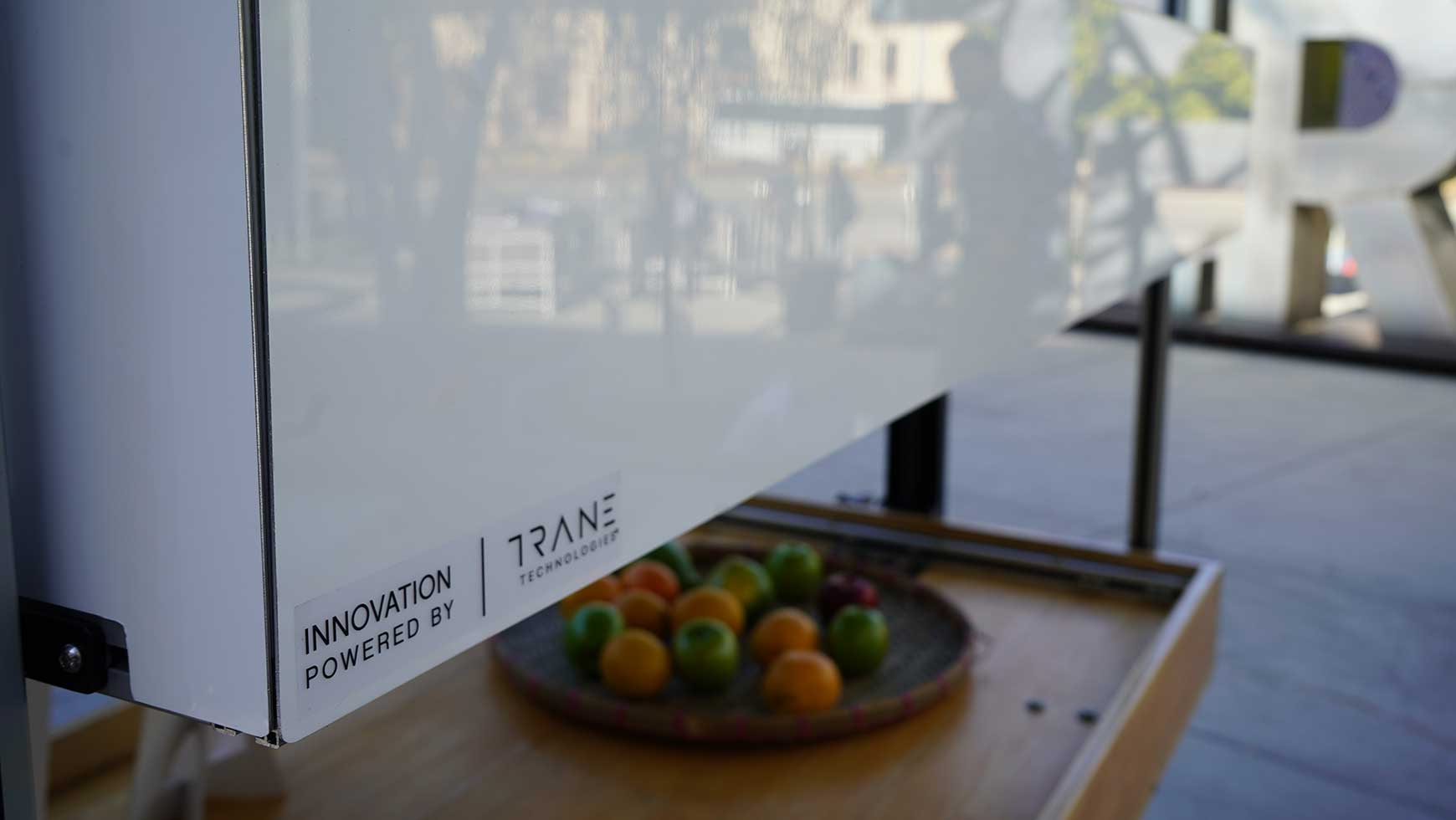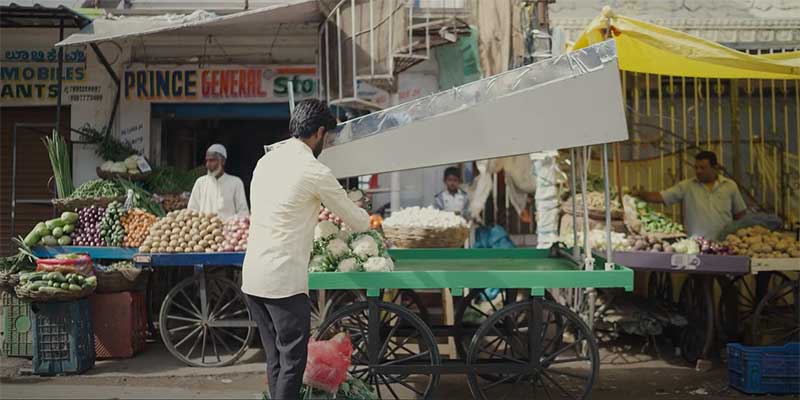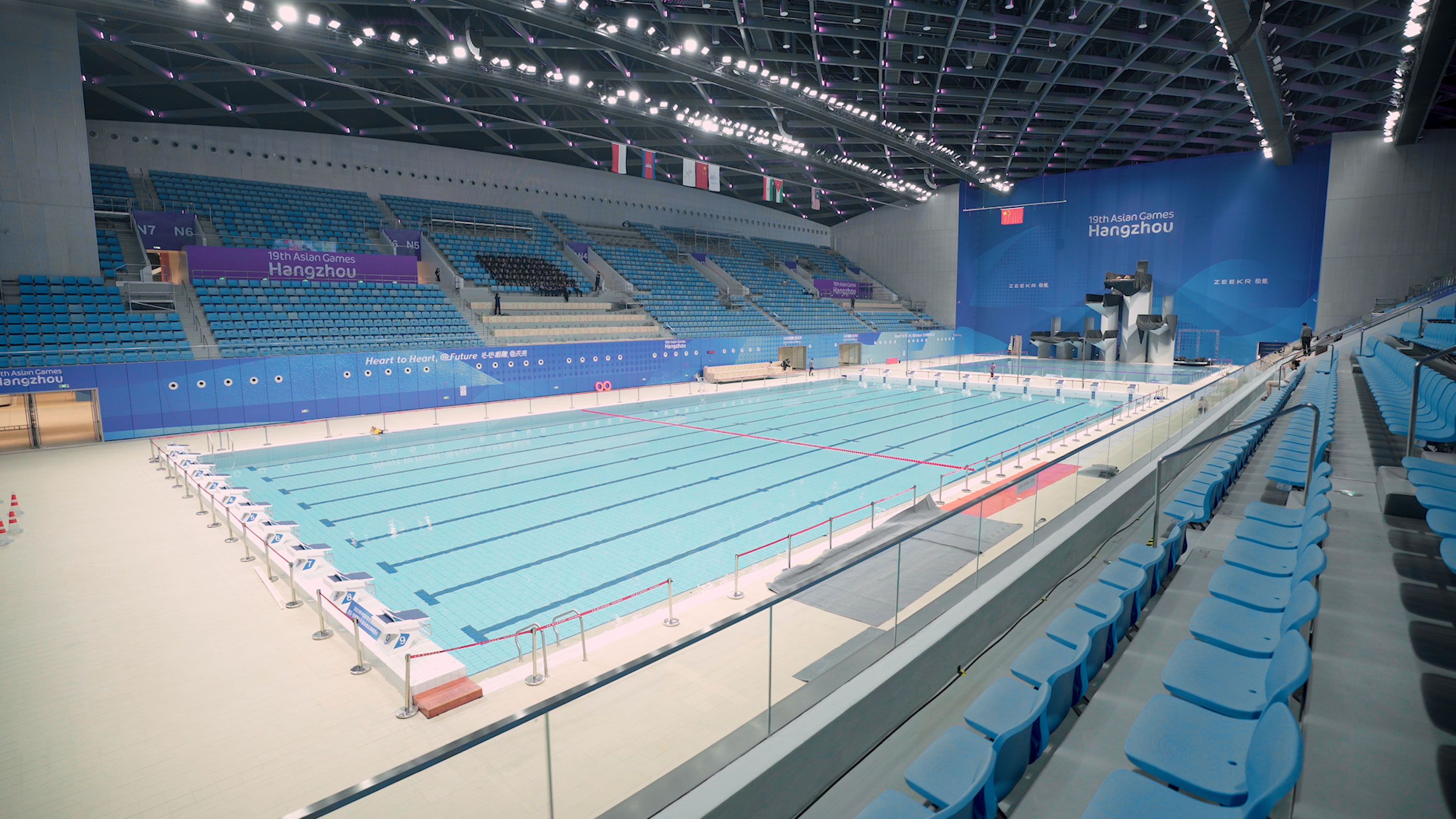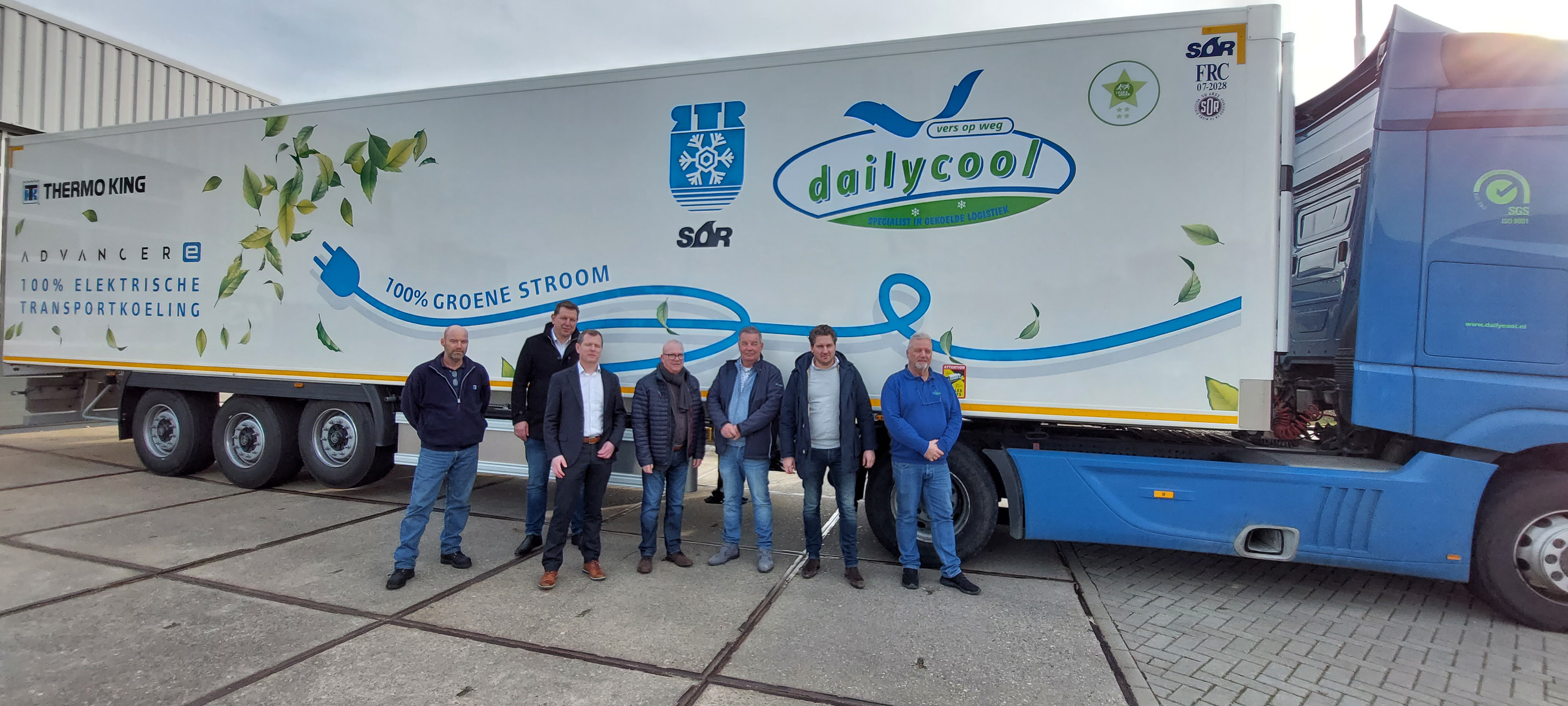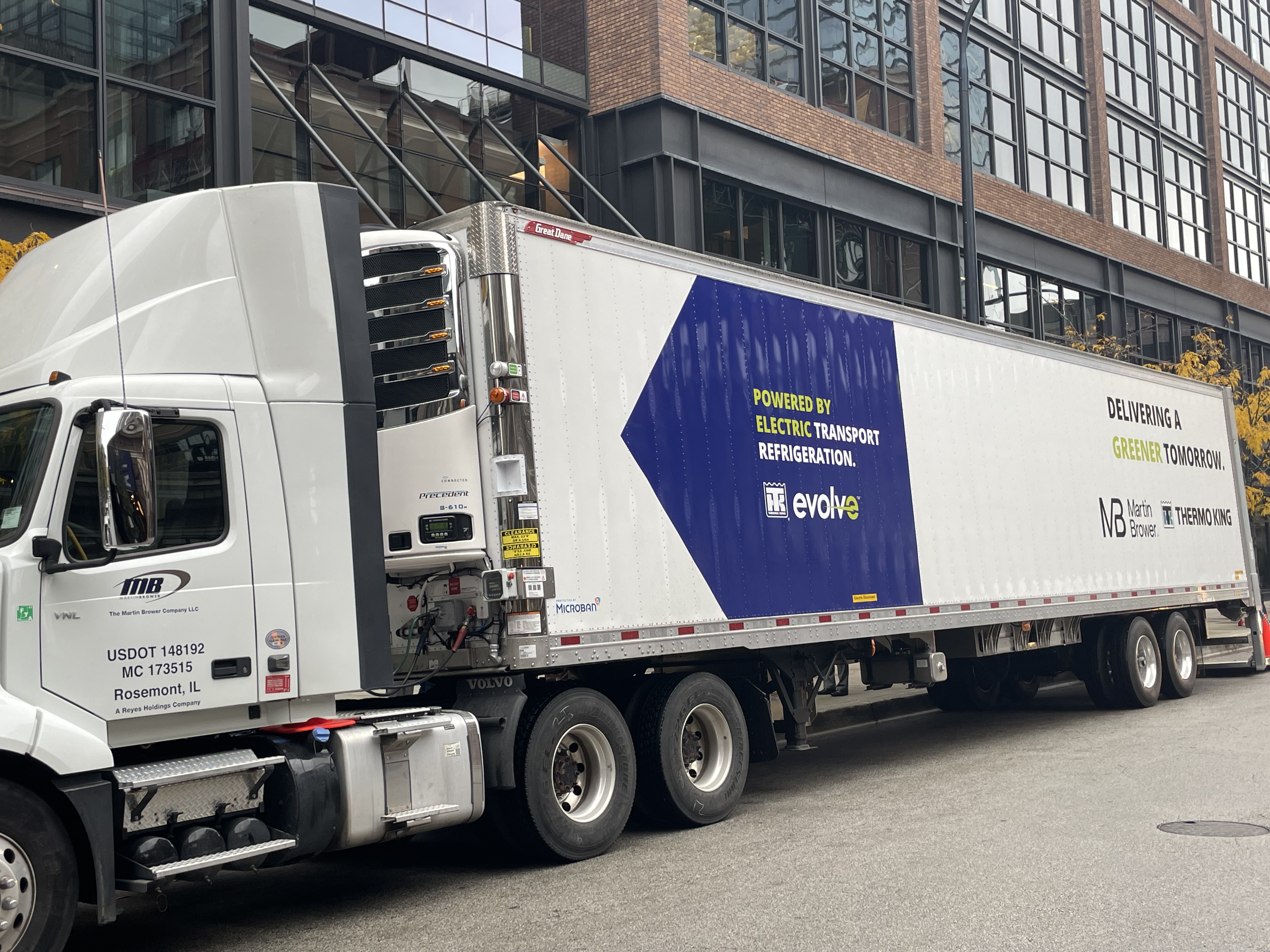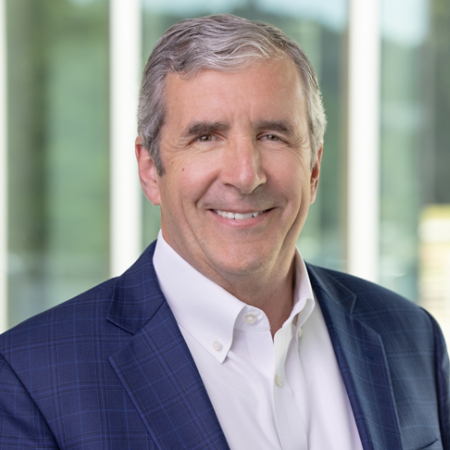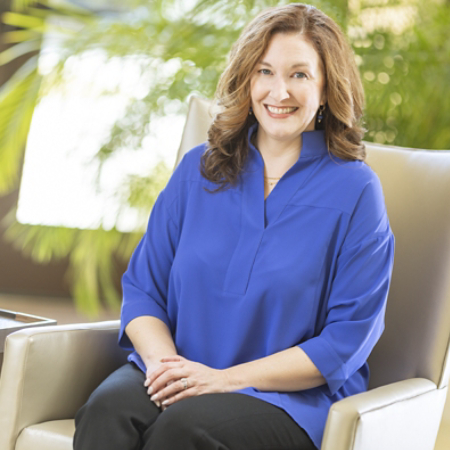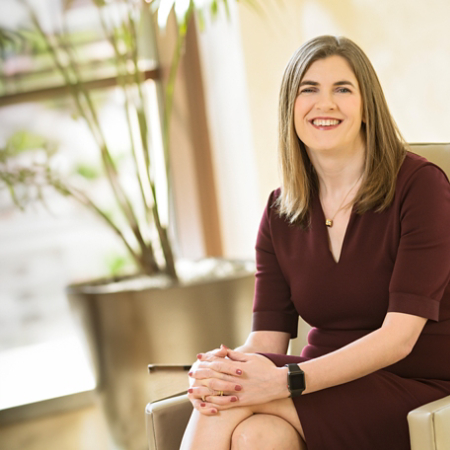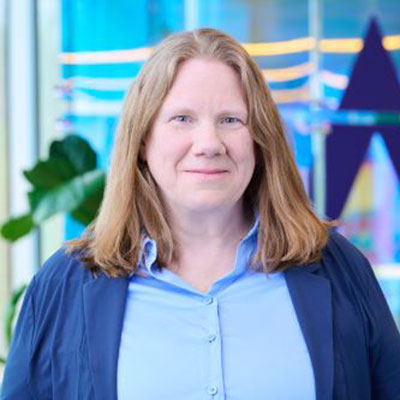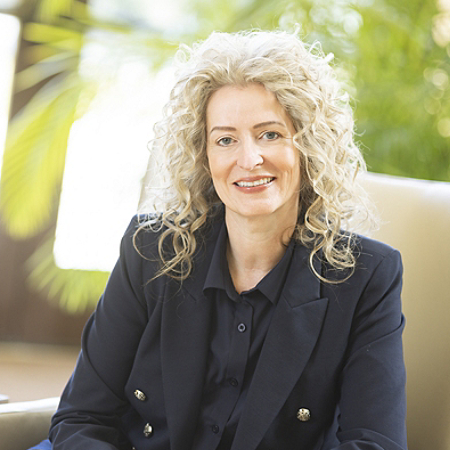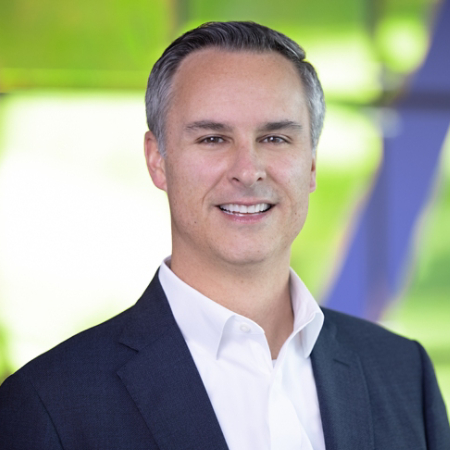In India there is hunger and malnutrition.
And at the same time I commute to work,
I travel through a vegetable market.
I see a lot of vegetables and fruits dumped by the road.
And there is a lot of waste.
The simultaneous existence of food waste, loss and hunger
is a major issue.
And this is one of the first problems that we are tackling
as part of Operation Possible.
Operation Possible is one of the initiatives
taken by Trane Technologies.
Where the crowdsourcing of ideas
will be passed through a certain process
to identify which are these kind of challenges
and encourage employees to participate in that.
So that is how this entire project got initiated.
In order to understand how the food loss is happening
at the street vendors level.
It’s very important to understand
the daily life of the street vendors.
I have been a vegetable vendor for 40 years.
I have four children.
I don't have a house of my own.
I have just been able to make a living and provide food.
There are some difficulties in the vegetable business.
I have to borrow money.
I have to make a return on investment.
The problem is sometimes when we bring a lot of vegetables
some of it can rot and go to waste.
If it rains heavy or when the sun is too hot
it can be problematic.
I invest around 3000 INR (38 USD).
After I am done with business,
I make a profit of 500 INR (6 USD) for the day,
but come what may, there is an approximate loss of 25%.
Usually we throw out 2-3 kgs of vegetables.
If the items get wasted we can’t do anything.
It’s quite unpredictable
They are aware of this problem.
At the same time, they don't have a solution.
They are desperate for a solution.
And once we understood that these issue is there.
We were able to develop a hypothesis
of how we can tackle this problem.
We ended up forming truly a global team within India
as well as representatives from Vietnam, China and even Africa.
To understand what solution works best for the street vendors.
If we were able to increase the shelf life of these vegetables
for a couple of more days,
we can certainly reduce the food loss to a greater extent.
And eventually that could increase the income
for the street vendors as well.
To solve that problem for them,
we come up with a solution
that can be implemented in the field.
We also partnered with a local university
whose most of their students are from farming families.
So the MBA students were able to successfully interact
with the street cart vendors and local authorities.
And understand the kind of challenges
they face on the everyday basis.
The street vendors,
they want the solution to cool their vegetables
so that it will look fresh.
But the key thing is that they want the solution without electricity.
Passive radiative cooling technology is an interesting thing.
Any surface which face the sky gets heated
due to the sun incidence.
At night time, when there is no sun,
all these surfaces start radiating the heat back into the deep space
In a particular wavelength.
We found a technology where this passive radiative cooling
can be done during daytime as well.
There is a company in California which develops a film,
like aluminum foil, it radiates the heat to the sky
because sky is always at a very low temperature.
Once we paste it on the canopy, the temperature below
can get up to ten degrees below what it was experiencing before.
So building the prototype is an iterative process.
Initially, we procure fresh vegetables
and then we have sensors that measure different parameters,
and we see how the vegetables go bad over a period of time.
And then we introduce different interventions,
potential solutions,
to see how that deterioration can be slowed down.
We want the solution to be effective.
At the same time, it should be affordable.
We have to see how to integrate these technologies
on carts which are being sold today.
So this way we are able to fine tune our approach,
and then we formalize a design and take it forward.
Now the last piece was that we have a solution.
It's time for us to build some prototype
and test out there in the field.
So we tested for a pilot study in a place called Kolar.
And in Kolar also we are having a lot of enthusiastic participation
from the local government officials.
It will work because they buy the vegetables for the day.
The cooling will keep it fresh for the next day as well
so, the new cart will be useful for them.
It directly impacts on the earnings.
Earnings make a livelihood.
Livelihood makes a good value to the society.
Since one or two of them already have it,
it can pique interest in others.
There are around 1000 street side vendors.
If we buy each one of them a cart
in the future it will benefit both consumers and the vendors
and also the society can benefit from this.
The beneficiaries are going to be street vendors,
but the sponsor has to be someone else.
So in order to bind all these things together,
we are also thinking how this solution can be
commercialized and implemented in a large scale.
We are doing it now in India,
but this has the potential to transform
lives across the world.
If we could able to consistently
show them the benefits.
In terms of doubling the income, in terms of avoiding the losses,
I'm pretty confident over time
there will be huge acceptance of this vending cart.
The cart is super.
The vegetables which we throw out can be saved,
big losses won’t happen and we will be in profit.
The cart which you guys provided us is very good.
It is making our lives easy.
This has to be provided to other vendors as well.
I am very happy sir for giving us this cart.
Namaste.
